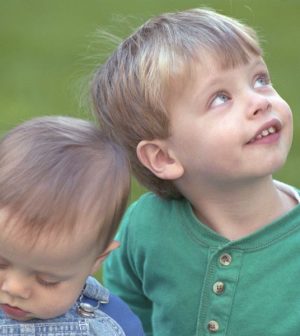- Could Your Grocery Store Meat Be Causing Recurring UTIs?
- Are You Making This Expensive Thermostat Error This Winter?
- Recognizing the Signs of Hypothyroidism
- 10 Strategies to Overcome Insomnia
- Could Artificial Sweeteners Be Aging the Brain Faster?
- Techniques for Soothing Your Nervous System
- Does the Water in Your House Smell Funny? Here’s Why
- Can a Daily Dose of Apple Cider Vinegar Actually Aid Weight Loss?
- 6 Health Beverages That Can Actually Spike Your Blood Sugar
- Treatment Options for Social Anxiety Disorder
How to Recognize Early Learning Challenges in Kids

Many children have difficulty with learning at some point, but those with learning disabilities often have several specific and persistent signs, which can start in preschool years. Recognizing them as soon as possible allows a child to get needed help and make better progress.
General signs include difficulty with reading, writing, math skills, understanding or following directions, paying attention, retaining information, staying organized or understanding words or concepts, including time, according to the U.S. National Institute of Child Health and Human Development.
You or a teacher may also notice problems with behavior, such as not responding appropriately to situations or when dealing with new things.
Signs of learning problems in preschoolers include starting to talk later than their peers, having a hard time pronouncing words and learning the alphabet, numbers and days of the week, extreme restlessness, difficulty interacting with their peers and following a simple routine. You might notice that the child struggles with rhyming words and that his vocabulary is slow to increase — one sign of this is not being able to find the right word when talking.
In elementary school-aged kids, signs of learning difficulty might include confusing basic words, transposing or substituting letters, numbers and arithmetic signs, acting impulsive and even having poor coordination or being accident-prone. A child may be slow to learn or have difficulty remembering lessons.
Developing the right plan for your child starts with getting a professional evaluation. Often teachers are the ones to pick up problems, but if you’re concerned, talk to your pediatrician or the school psychologist.
An evaluation involves academic and psychological testing as well as a review of the child’s developmental, school and social performance. Once a determination is made, an individualized education plan, or IEP, can be developed. Needed educational services may be paid for by the government, so don’t delay.
More information
The U.S. National Institute of Child Health and Human Development has more on signs of learning disabilities in children.
Source: HealthDay
Copyright © 2026 HealthDay. All rights reserved.










